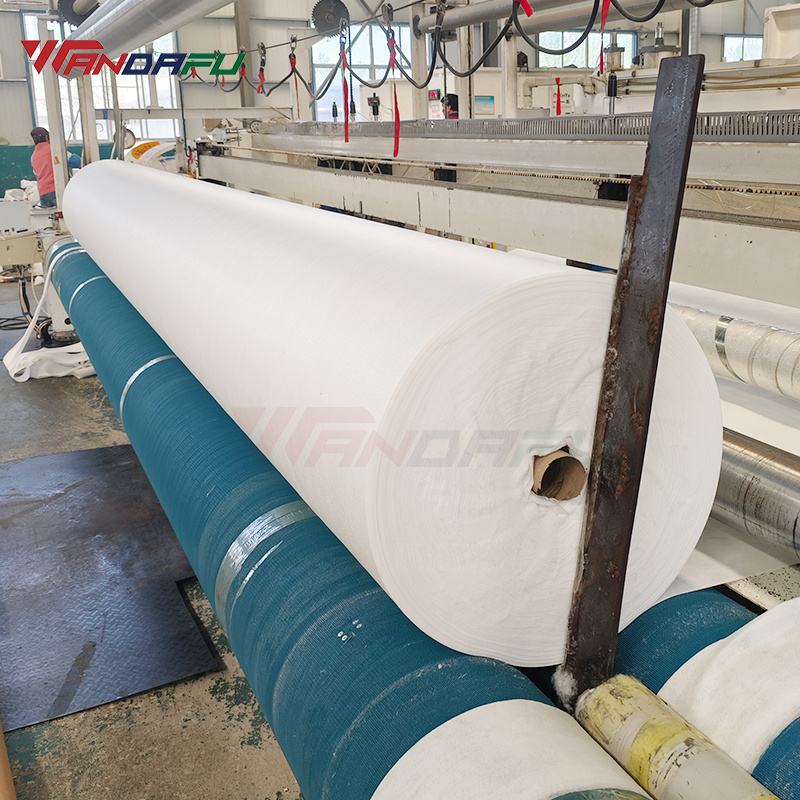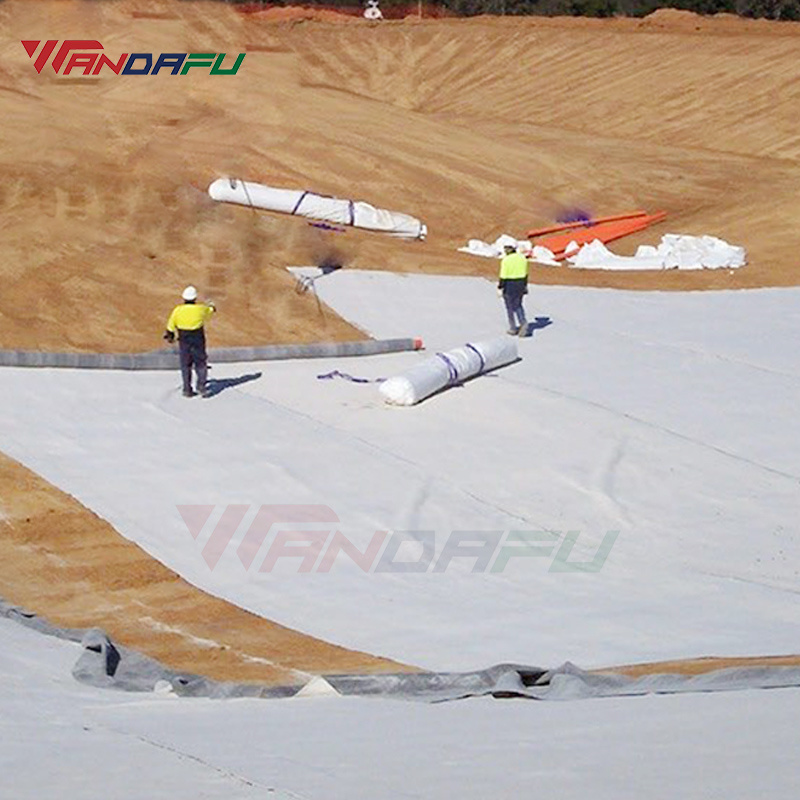
Durable Geotextile Solutions for Erosion Control & Soil Stabilization
Release time:
2025-05-24
Erosion and soil instability threaten infrastructure, agriculture, and environmental sustainability. Without proper reinforcement, soil can wash away, slopes can collapse, and roads can degrade prematurely. Geotextiles—engineered synthetic fabrics—offer a cost-effective, long-lasting solution for stabilizing soil and preventing erosion.
Introduction
Erosion and soil instability threaten infrastructure, agriculture, and environmental sustainability. Without proper reinforcement, soil can wash away, slopes can collapse, and roads can degrade prematurely. Geotextiles—engineered synthetic fabrics—offer a cost-effective, long-lasting solution for stabilizing soil and preventing erosion.

This guide explores:
✔ How geotextiles control erosion & strengthen soil
✔ Woven vs. non-woven geotextiles: Which is best for your project?
✔ Key properties that make geotextiles effective
✔ Real-world applications in construction & environmental projects
✔ How to choose the right geotextile for maximum durability
How Geotextiles Prevent Erosion & Stabilize Soil
Geotextiles work through four key mechanisms:
-
Separation – Prevents soil layers from mixing, maintaining structural integrity.
-
Filtration – Allows water to pass while trapping soil particles, reducing erosion.
-
Reinforcement – Adds tensile strength to weak soils (critical for slopes & roads).
-
Drainage – Non-woven geotextiles facilitate water flow, preventing saturation.
Common Applications:
-
Road & railway construction (prevents base layer degradation)
-
Slope & embankment stabilization (reduces landslide risks)
-
Coastal & riverbank protection (shields against wave & water erosion)
-
Landfill liners & drainage systems (enhances filtration & durability)

Types of Geotextiles: Woven vs. Non-Woven
Choosing the right geotextile depends on strength, permeability, and project requirements.
| Feature | Woven Geotextiles | Non-Woven Geotextiles |
|---|---|---|
| Manufacturing | Interlaced fibers (high strength) | Chemically/thermally bonded (porous) |
| Best For | Heavy load support (roads, retaining walls) | Drainage, filtration (erosion control, landscaping) |
| Permeability | Low to moderate | High |
| Durability | Excellent tensile strength | Resists clogging, ideal for long-term filtration |
Which One Should You Use?
-
For soil reinforcement (roads, slopes): Woven geotextiles
-
For drainage & erosion control: Non-woven geotextiles
Key Properties of High-Performance Geotextiles
Not all geotextiles are equal. The best ones offer:
✅ High Tensile Strength – Resists tearing under heavy loads (critical for roads & embankments).
✅ Optimal Permeability – Allows water flow without losing soil (non-woven excels here).
✅ UV & Chemical Resistance – Ensures longevity in harsh environments.
✅ Puncture Resistance – Withstands sharp rocks and debris.
Case Study: Geotextiles in Action
Project: Highway Slope Stabilization
Challenge: A steep slope near a river was eroding, risking road collapse.
Solution: A woven geotextile was installed beneath riprap (rock armor).
Result: Erosion reduced by 80%, extending the road’s lifespan by 20+ years.
How to Choose the Best Geotextile for Your Project
Follow these steps:
-
Define the Primary Need (reinforcement, drainage, or filtration?).
-
Check Load Requirements (heavy-duty roads need woven; drainage needs non-woven).
-
Assess Environmental Conditions (UV exposure, chemical contact?).
-
Consult a Geotextile Supplier (get expert recommendations).
Why Our Geotextiles Stand Out
At [Your Company Name], we provide:
✔ Premium woven & non-woven geotextiles
✔ Custom solutions for any project size
✔ Industry-leading durability & performance
✔ Fast shipping & competitive bulk pricing
Conclusion
Geotextiles are a proven, sustainable solution for erosion control and soil stabilization. Whether you're reinforcing a highway, protecting a shoreline, or improving drainage, the right geotextile ensures long-term stability and cost savings.
Need help selecting the best geotextile?
📞 Contact our experts today for a free consultation!
Latest News



